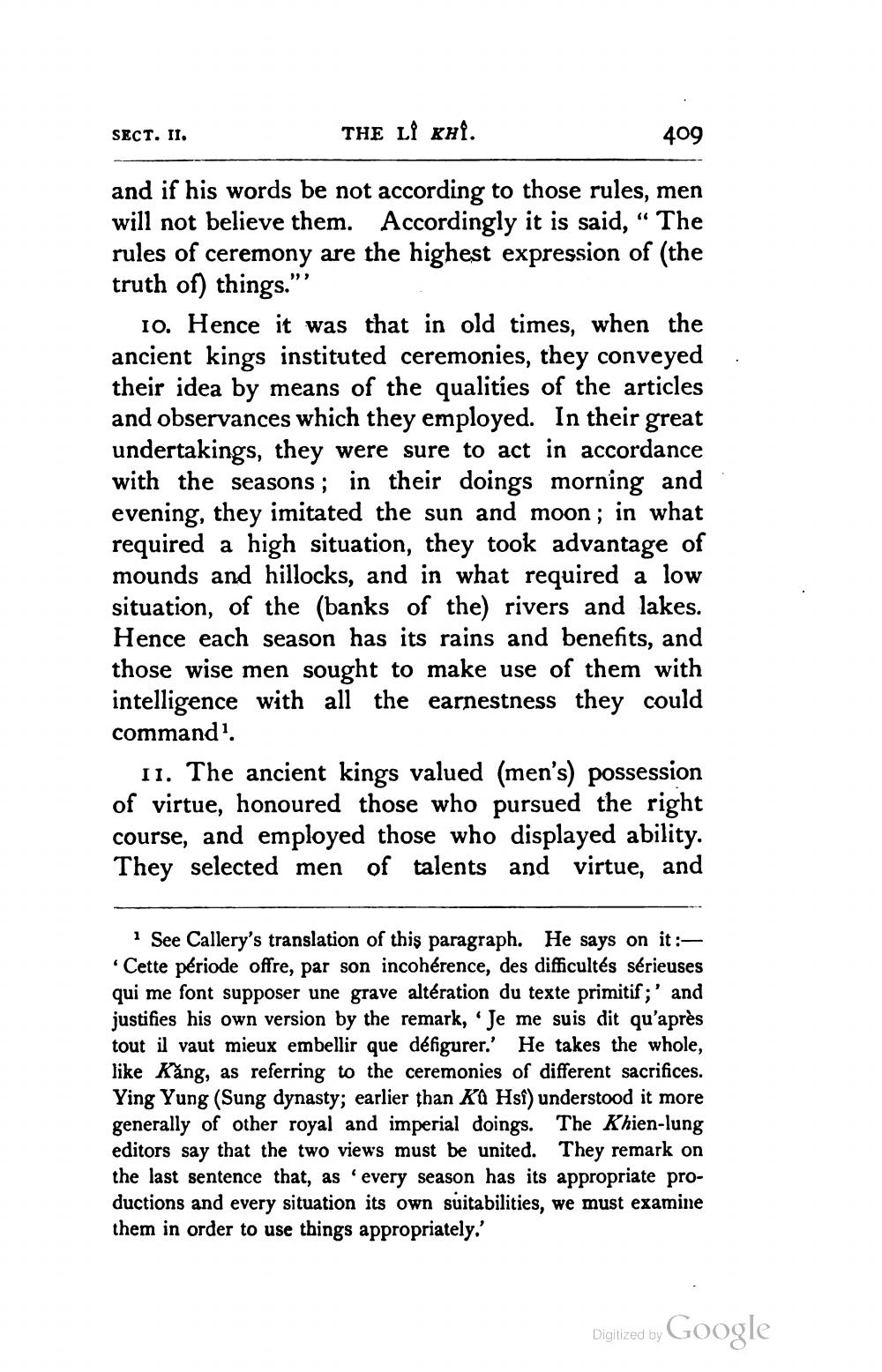________________
SECT. II.
THE LÝ KHÍ.
409
and if his words be not according to those rules, men will not believe them. Accordingly it is said, " The rules of ceremony are the highest expression of (the truth of) things."
10. Hence it was that in old times, when the ancient kings instituted ceremonies, they conveyed their idea by means of the qualities of the articles and observances which they employed. In their great undertakings, they were sure to act in accordance with the seasons; in their doings morning and evening, they imitated the sun and moon; in what required a high situation, they took advantage of mounds and hillocks, and in what required a low situation, of the banks of the) rivers and lakes. Hence each season has its rains and benefits, and those wise men sought to make use of them with intelligence with all the earnestness they could command".
11. The ancient kings valued (men's) possession of virtue, honoured those who pursued the right course, and employed those who displayed ability. They selected men of talents and virtue, and
See Callery's translation of this paragraph. He says on it:Cette période offre, par son incohérence, des difficultés sérieuses qui me font supposer une grave altération du texte primitif;' and justifies his own version by the remark, Je me suis dit qu'après tout il vaut mieux embellir que défigurer.' He takes the whole, like Kang, as referring to the ceremonies of different sacrifices. Ying Yung (Sung dynasty; earlier than Ka Hsi) understood it more generally of other royal and imperial doings. The Khien-lung editors say that the two views must be united. They remark on the last sentence that, as 'every season has its appropriate productions and every situation its own suitabilities, we must examine them in order to use things appropriately.'
Digitized by Google




